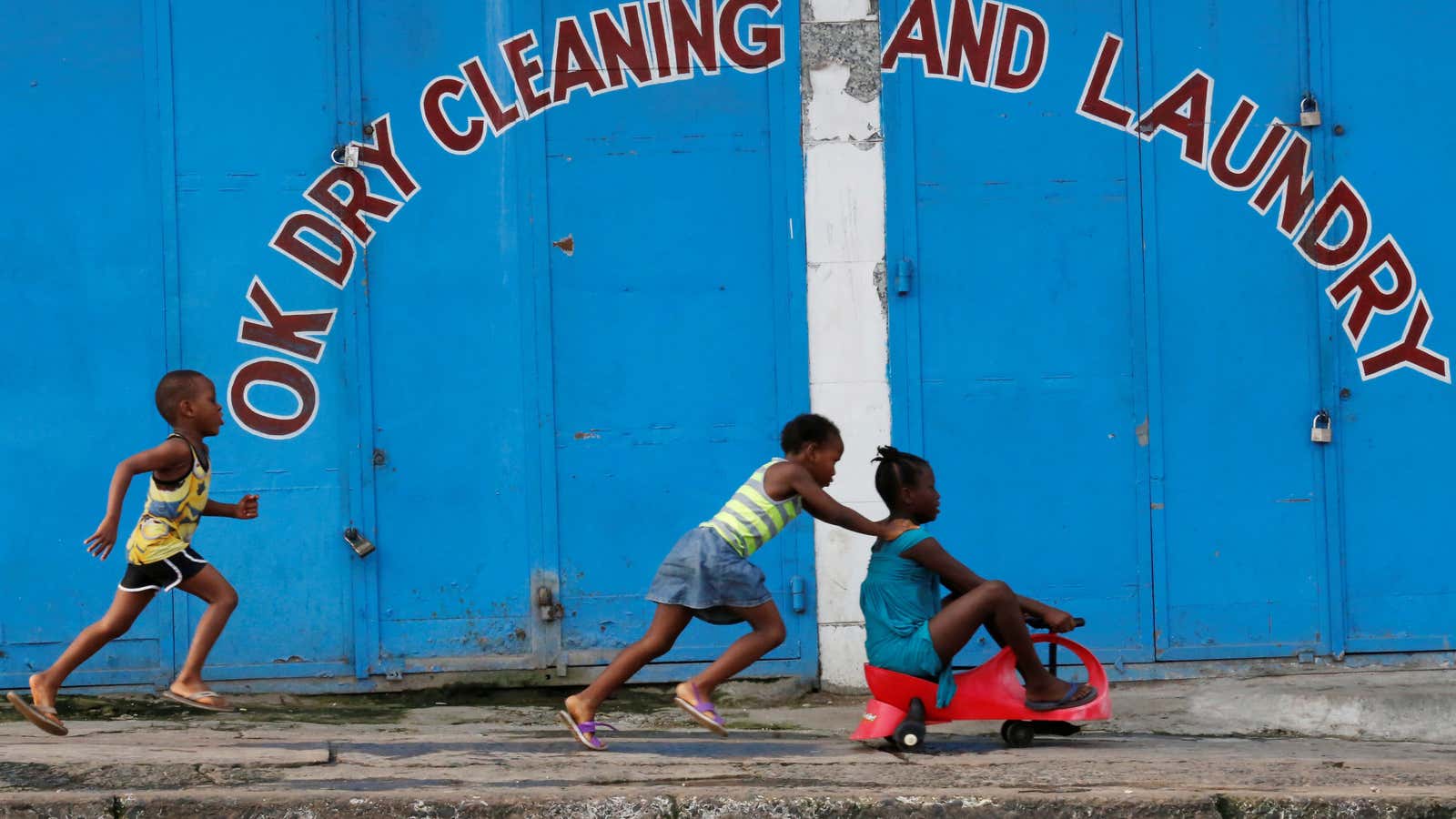Africa, home to 16% of the world’s population, is the unhappiest continent. The continent featured at the bottom of the list of the World Happiness Report, a survey released this month that ranks global happiness in 155 countries. People in the 44 African countries surveyed faced ‘happiness deficit’ because they scored low in key indicators that lead to well-being and happiness such as freedom, good governance, health provision and income equality.
However, enduring poverty or living under authoritarian rule doesn’t necessarily translate to espousing a grim view of the future. As the Africa chapter of the report notes, Africans showed “exceptional” global levels of optimism and resilience to their less-than-perfect circumstances. The optimism was underwritten by the coping mechanisms developed over decades of dealing with poor infrastructure; lack of water, food, and electricity; and poor living standards.
This positive expectation of the future is also buoyed by the resolution that happiness is not just a personal project, but a social one. Over the decades, communities across the continent have developed collectivist values rooted in African humanism and Ubuntu, a philosophy that promotes the belief in a universal bond of sharing that connects all humanity. These familial or tribal networks ensure societal well-being especially during trying times, says Eunice Olawo, a psychologist and the managing director of the Moir Counseling Agency in Nairobi.
Facing unemployment, the death of a parent, or war, community members know that others will come to assuage their pain and needs. A case in point is Somalia, where strong ethnic diaspora networks annually send home—either out of conviction or a sense of duty—about $1.4 billion dollars, surpassing any amount of aid given to the war-torn nation. “Our happiness is tied along with the happiness of the family or the community,” Olawo says. “It’s a responsibility for everybody.”
Muthoni Njogu, a psychotherapist based in Nairobi, says that this “fabric of community” allows people to “cope with these incredible, horrible, terrifying things and experiences.”
Africans also found comfort in their different systems of faith and worship. Having faith in God keeps many people in suffering hopeful that things will become better. A recent Pew Research study of global religiosity found that a substantial number of Africans ranked religion as “very important” in their lives.
“There’s that whole [idea] of looking at God as supreme and center,” Olawo said. “That despite what I am going through, He has not given me everything that I wanted, but He has done His part in many other areas. So that also keeps us grounded.”
Optimism about future life evaluations was naturally highest among younger generations. In almost all African countries, youthful optimism is above the national average, according to the Happiness report.
This is especially true for those between the ages of 15 and 45, who hope that systems of governance and civil liberties will improve so that they could lead healthier, efficient and more prosperous lives. The optimism existed in countries like Libya (third happiest African nation) or Tunisia (8), where third liberation movements recently toppled dictatorships. And in countries like South Africa (7), Cameroon (11) or Kenya (13), where improved governance and economic growth were in place.
Njogu says that the resilience of Africans shouldn’t, however, be compared to their levels of happiness. “Yes we are resilient,” she says. But “just because people have found ways to navigate through challenges doesn’t mean they are happy. It just means they are surviving.”
